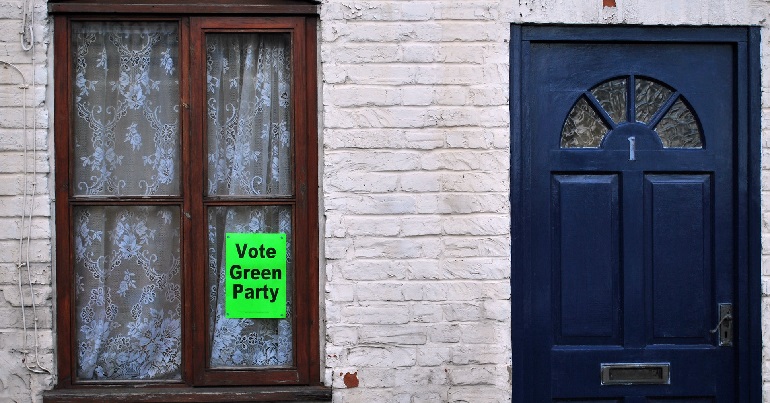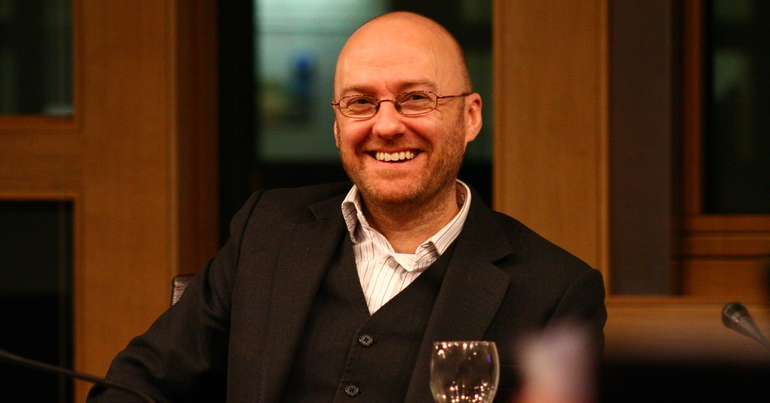Forget tactical voting. Now’s the time to vote Green.

Greens didn’t call this election. And we think it’s wrong to proceed to an election now instead of attempting to resolve the single biggest constitutional crisis first with a People’s Vote.
The election sees a number of problems coming all at once. The practicalities of polling stations and count centres not being available or, because of Christmas booking cancellations, cost. Speculation abounds about what the weather may do to turnout. But if we focus on evidence, if indeed people are less inclined to go out to vote in bad weather, they will use a postal vote. In 2017 almost 9 in 10 postal voters cast their vote, in comparison with 65.9% of in person votes. The quantity of postal votes continues to rise too. So before the short period is called Greens should build robust strategies on maximising the postal vote.
An historic opportunity
I believe this election represents an historic opportunity for the party. Here’s why:
A Yougov poll this week shows a whopping 34% don’t know who would make the best Prime Minister. So on this key question, the jury’s out. In the same poll, the British population on the one hand think the government is handling Brexit badly but Boris Johnson remains 20 points ahead. Voter volatility is the highest it’s been in a century, with Brexit even breaking down what the British Election Study terms “the taboo of switching between Conservatives and Labour.”
The context is important too. Repeatedly when voters are asked to consider voting on policy from portals such as voteforpolicies they routinely find they like what the Greens have to say. Never before has there been greater awareness nor willingness to take action on the climate crisis. The law firm ClientEarth yesterday published an instructive poll stating a majority of people believe the climate crisis will influence how they vote on December 12th.
There has been very recent revival of the party’s poll rating – climbing to 6% this week. The million people on the streets marching for a People’s Vote suggests many are with us on the key question of our time. So, in Hastings, for example we should stand a candidate because Tory incumbent Amber Rudd (who had retained her seat only with a paper-thin majority) has made it clear she won’t re-stand. Now the election is happening we should select candidates in every single seat and fight to win everywhere we can.
Learning lessons. And fast
The attempt to hastily throw together an electoral alliance in 2017 was, I believe, among the worst political decisions the party has made. There is no question that we were squeezed in a titanic battle between the two major parties. But we squeezed ourselves too.
The Green Party managed to keep only 9 deposits out of 461 in 2017 when only two years earlier it retained 123 deposits out of 573 challenged seats. The party lost vast amounts of ‘short’ money too. A reminder: as well as a sum for seats won, this amounts to £35.30 for every 200 votes gained by the party, according to the House of Commons library.
Labour celebrated our brave decisions to stand aside in 31 seats without reciprocating in a single seat. Labour’s decision not to offer pacts or coalitions, harks to the mistaken belief that they can take seats everywhere.
The other consideration of course is the behaviour of Labour in elections, even under the ‘new politics’ of Jeremy Corbyn.
In the snap election in 2017 in Hove, Labour delivered a ‘hand-written’ note to constituents suspected of supporting the Greens. Labour tried to claim that it had been produced without the sign-off of their agent, whose name was at the bottom of the letter!
Only yesterday, we had Ben Bradshaw tell Radio 4’s Today that Labour is the only party to offer a People’s Vote when everyone knows Greens have spent years trying to persuade Labour to quit the endless Brexit triangulation and get behind an informed People’s Vote. Neither am I consoled by Labour saying they’ll ‘soft pedal’ in Brighton Pavilion given that at the last election Labour told their activists around the country they stood down when they fought for the seat with considerable time and resource.
Our voice at its loudest
There are huge opportunities and it is simply a dereliction of duty on the one hand to talk about a climate emergency but then stop our party shouting about the most important issue of our times – about our very existence and the future of the planet. So our question for ourselves is how do we ensure as many votes come to the party so our voice is maximised. If it needs spelling out: the way we have won everything else- first councillor through to first MEP- is by target to win and then fighting to win. It could not be done with some of the most historically complex and compromised communications in the snap election. And I believe – when the evidence is so clear – that to not have as many Greens standing to win would be a massive disservice to planet and people alike.
We will strike with the deadly seriousness of our message and our capacity to work hard to represent people. Whether it’s the only party with a worked-up solution to averting imminent recession with a green collar jobs plan or our distinctive voice on a Green New Deal, the abolition of the Home Office or a four-day week. My message to the other parties: don’t underestimate us in this election.
As voters discovered in countless councils across the country in May and a few weeks later in the European elections – we broke through in places where it wasn’t expected. Ambition and optimism should be the party’s watchwords. People can vote for what they want rather than what they’re told by the broken failed first past the post system. They can vote for the Green Party.
Phelim Mac Cafferty is convener of the Green group on Brighton & Hove council.
Header image credit: Blue Square Thing – Creative Commons




Leave a Reply